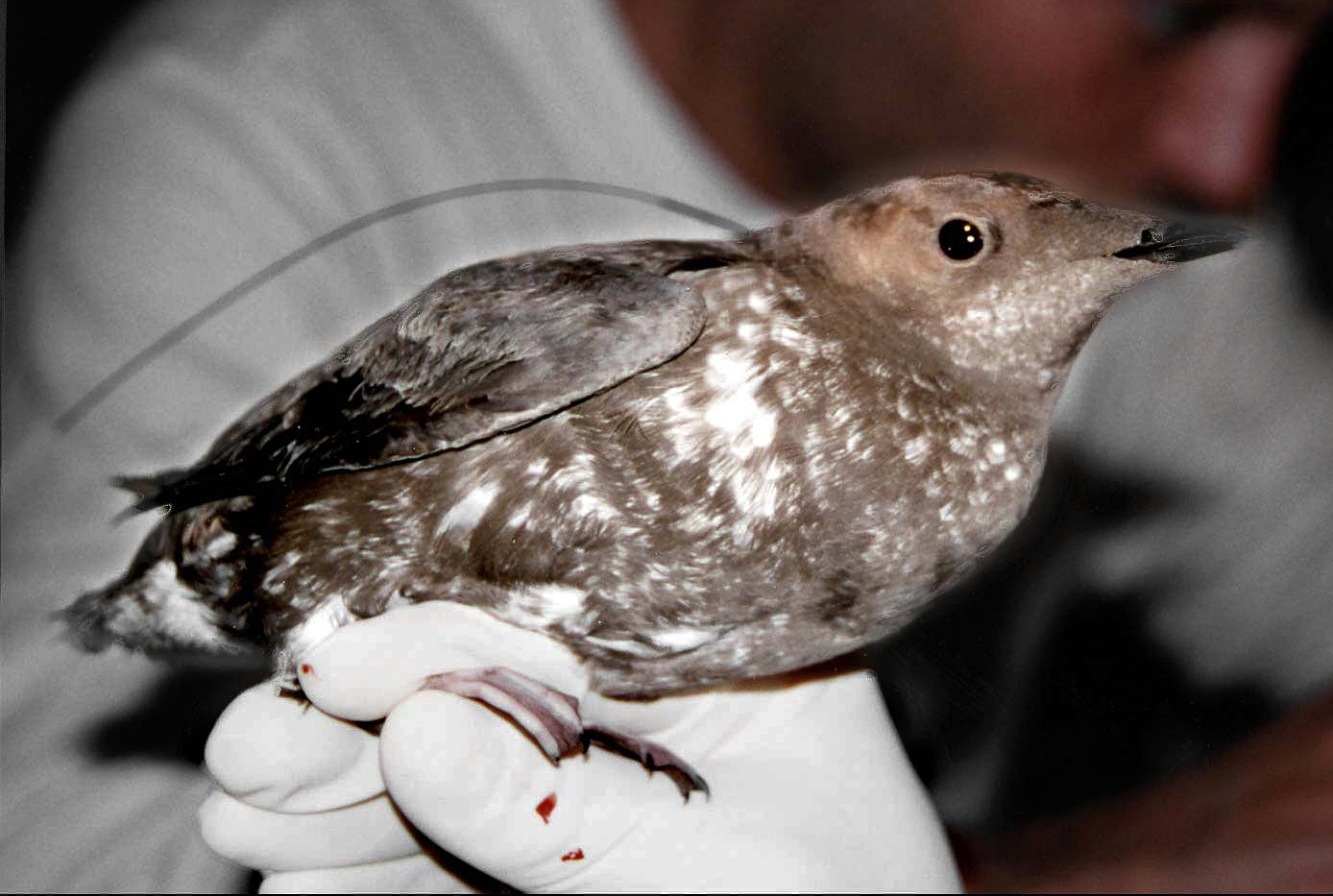PORTLAND — Two federal agencies are at loggerheads over a decision to remove five old-growth trees from the habitat that supports a threatened sea bird during breeding season.
The U.S. Forest Service cut the trees — one was 238-feet tall — in April at the Sunshine Bar Campground near Port Orford. The threatened marbled murrelet nests in the campground, though it’s unknown if any were in the trees when they were felled.
The agency generally must get a permit from the U.S. Fish and Wildlife Service to take a tree during the breeding season. But Fish and Wildlife did not know the trees were gone until getting a tip in late July.
“We’re still trying to figure out the rationale,” said Jim Thrailkill, a Fish and Wildlife field supervisor.
In written responses Friday, the Forest Service said the trees were near a campsite and at high risk of losing limbs or falling. Of the five trees that were removed, the Forest Service said, one was dead, and the other four had dead tops.
As for why it did not get approval from Fish and Wildlife, the agency said guidelines written for hazard trees in the Rogue River-Siskiyou National Forest are not compatible with newer, regional Forest Service rules regarding hazard trees in campgrounds. It said it is now working closely with Fish and Wildlife to address the issue.
The marbled murrelet was listed as threatened in 1992, and habitat protection has meant less logging in the Northwest. The tiny sea birds venture inland to raise their young and — like the spotted owl — depend on old-growth forests for nesting.
Environmental group Friends of the Elk River reported the habitat removal to the Fish and Wildlife Service. The group’s founder, Jim Rogers, obtained a Feb. 7 letter from the Forest Service in which Powers Ranger District engineer Robin McAlpin wrote to District Ranger Jessie Berner about the need for a refresher class for fallers. Sunshine Bar Campground is mentioned as the site.
The Forest Service acknowledged that training took place at Sunshine Bar. It said, however, the removal of hazardous trees was the priority, and it turned into a training session.
Rogers, a 71-year-old forester, said at least four of the trees could have had their tops removed rather than felled, and the public have would have been safe.
Thrailkill declined to say if his agency would pursue a penalty against the Forest Service.



